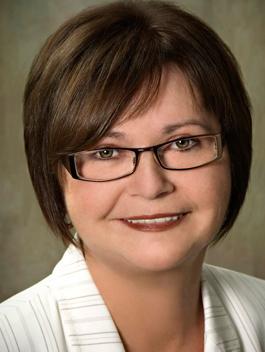
Foote–Steps For Phoenix
Ottawa Life Magazine interviewed the Honourable Judy M. Foote, Minister of Public Services and Procurement Canada (PSPC), in December 2016, regarding the Phoenix pay debacle. Phoenix, the government's new computerized pay system, was launched in February 2016, leading to complaints by tens of thousands of federal employees. Some were underpaid, others were overpaid and some were not paid at all. Foote said that part of the blame for the Phoenix mess was due to the decision by the previous Harper Conservative government to lay off 700 compensational advisors.
“I’m confident if that had not been the case with the previous government, this would not be the case today.” Foote said that “anyone not getting paid for work that they are doing is unacceptable.” However, she told OLM that she felt the Phoenix problem is, “one that we inherited, but it’s mine to fix, and we will fix it.”
On February 7, 2017 Foote said that while progress was being made on Phoenix, her priority was still focused on making sure that those public servants, who were still not getting paid for work performed, get paid.
PSPC also confirmed in February that the initial $50 million estimate to fix Phoenix issues will be much higher. A bigger problem is that due to Phoenix system errors. More than 26,000 federal employees have been overpaid a total of about $68.6 million and, as of January, only one-third of that amount, approximately $22.3 million, has been recovered. On February 8, Minister Foote told the CBC that her first priority is still to correct problems for underpaid and unpaid workers, and it will eventually turn to recouping taxpayer money that’s been overpaid. “We will get the money that’s owed to the government, money that’s been overpaid, when we get to those cases.” She added. “I encourage any employees who are getting more money than they are entitled to, maybe, put that money into a separate bank account and the government will work out a ‘respectful’ process for overpaid workers to arrange either a lump-sum payment or repayment plan.”
Foote said the government was working hard to make sure those affected by payroll woes receive T4 tax slips that reflect the correct compensation amounts. “If they get one that’s not, we’re encouraging them to get in touch with us and we’ll make sure they get the right T4.”
Many federal public servants have had their lives turned topsy turvy with the debacle. In September 2016, Ottawa resident Suzanne Baptiste received a promotion. Due to human error, her promotion was recorded as a leave of absence. By January 2017, she had yet to receive a normal paycheck causing severe stress on her family.
John Warner is a federal public servant with a different Phoenix problem. He was overpaid, and then thousands of dollars of money was retroactively taken back on his paycheck. He reported that he was out thousands of dollars.
David little is a federal prison officer who was promoted in 2016, which he thought was a good thing. However, in logging his promotion, the new Phoenix system went awry and he has gone without any pay for months. The Phoenix crisis has also affected at least 80 students across Canada including many at Carleton University who could not pay their school fees on time after gaining work placements with the federal government. Carleton is now providing more than 30 students affected by the Phoenix pay issue with tuition payment extensions.
Although preoccupied with the Phoenix crisis, Foote has made progress on other government files. In December, she announced the awarding of a $2.4 billion fixed wing search and rescue aircraft contract to Airbus Defence and Space to replace the current fleet.
She said that the majority of maintenance work for the new fleet of aircraft will be performed in Canada, by Canadians. Foote and Defence Minister Harjit Sajjan said in November 2016 that Canada had a “capability gap,” in meeting its military obligations, and as a result, the government would sole source the purchase 18 Boeing Super Hornets (at an estimated cost of 10 billion dollars) as a stop-gap measure to start replacing Canada’s 30-year-old CF-18s. Foote then announced the government will launch a five-year competition to find a longer-term replacement fighter jet.
Foote also confirmed to OLM that the government is spending $60 billion in new funding for public transit, green infrastructure and social infrastructure. So far, the City of Ottawa has received $156 million towards 57 transit infrastructure projects, which include money for the Ottawa light-rail system, improvements to bus routes and transit corridors, and pedestrian and cycling bridges to connect pathways to light rail stations. Other projects like the Moose Consortium are expected to make their applications in the process to further improve Green Transit.












